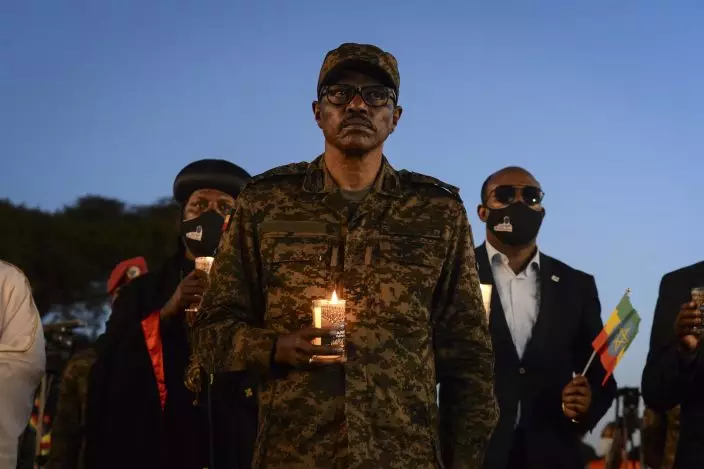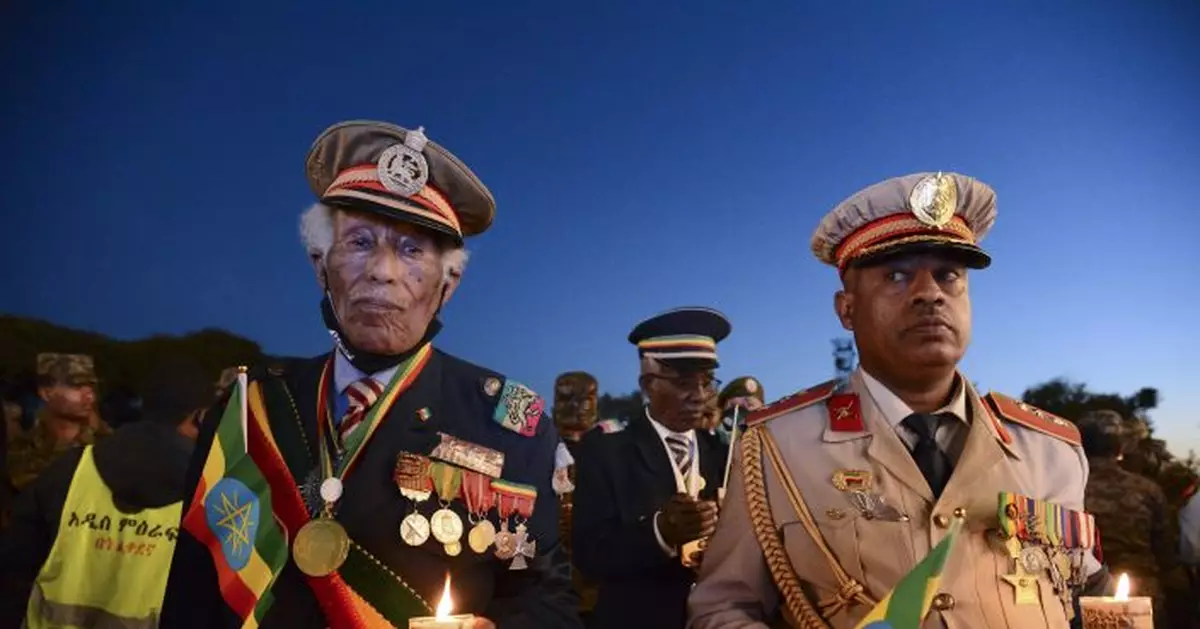Urgent new efforts to calm Ethiopia’s escalating war are unfolding Thursday as a U.S. special envoy visits and the president of neighboring Kenya calls for an immediate cease-fire while the country marks a year of conflict.
The lack of dialogue “has been particularly disturbing,” Kenyan President Uhuru Kenyatta said in a statement, as the war that has killed thousands of people and displaced millions since November 2020 threatens to engulf the capital, Addis Ababa. Rival Tigray forces seized key cities in recent days and linked up with another armed group, leading the government of Africa’s second most populous country to declare a national state of emergency.
The spokesperson for Prime Minister Abiy Ahmed, Bllene Seyoum, did not immediately respond Thursday when asked whether he would meet with U.S. special envoy Jeffrey Feltman, who this week insisted that “there are many, many ways to initiate discreet talks.”

Lieutenant-General Bacha Debele of the Ethiopian National Defense Force joins current and former Ethiopian military personnel and the public to commemorate federal soldiers killed by forces loyal to the Tigray People's Liberation Front (TPLF) at the start of the conflict one year ago, at a candlelit event outside the city administration in Addis Ababa, Ethiopia Wednesday, Nov. 3, 2021. All sides in Ethiopia's yearlong war in the Tigray region have committed abuses marked by "extreme brutality" that could amount to war crimes and crimes against humanity, the U.N. human rights chief said Wednesday. (AP Photo)
But so far, efforts for such discussions have failed. Last week a congressional aide told The Associated Press that “there have been talks of talks with officials, but when it gets to the Abiy level and the senior (Tigray forces) level, the demands are wide, and Abiy doesn’t want to talk.”
Instead, the prime minister has again called citizens to rise up and “bury” the Tigray forces who long dominated the national government before he came to power. On Wednesday, Facebook said it had removed a post by Abiy with that language, saying it violated policies against inciting violence. It was a rare action against a head of state or government.
Kenya’s foreign ministry separately said that statements inciting ordinary citizens into the conflict “must be shunned.” Kenya also has increased security along its borders amid fears of a wave of Ethiopians fleeing the war as one of the world's worst humanitarian crises spreads.


